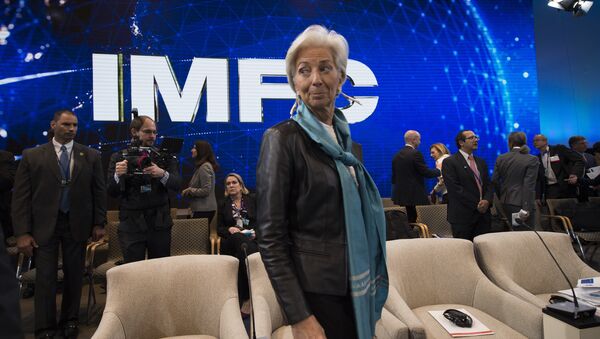"We now probably have a very opportunity time to put in place policies that we know will help…. There is clearly a sense that when you have a real crisis, when you have signals from voters, it is really time to say what more we can do, and what measures we can take to reduce inequalities," Lagarde said at a Davos session.
Choice of Donald Trump by US voters at presidential election and Brexit vote in the United Kingdom were the signs of discontent that policymakers should pay attention to now, according to the IMF head.
"All things that can be done — fiscal, structural reforms — need to be regional and focused on what people can take out of it," she noted.
The United Kingdom held a referendum on June 23, 2016, deciding to leave the European Union. May said the country would trigger the Article 50 of the EU Lisbon Treaty by the end of March, thus beginning withdrawal negotiations, as well as negotiations on free trade with London's international partners.
Trump's victory in the US 2016 election was a complete surprise for his rivals from the Democratic party and media. He managed to come ahead of Democrat candidate Hillary Clinton, securing the majority of electoral votes despite most of the analysts and opinion polls predicting his defeat.



